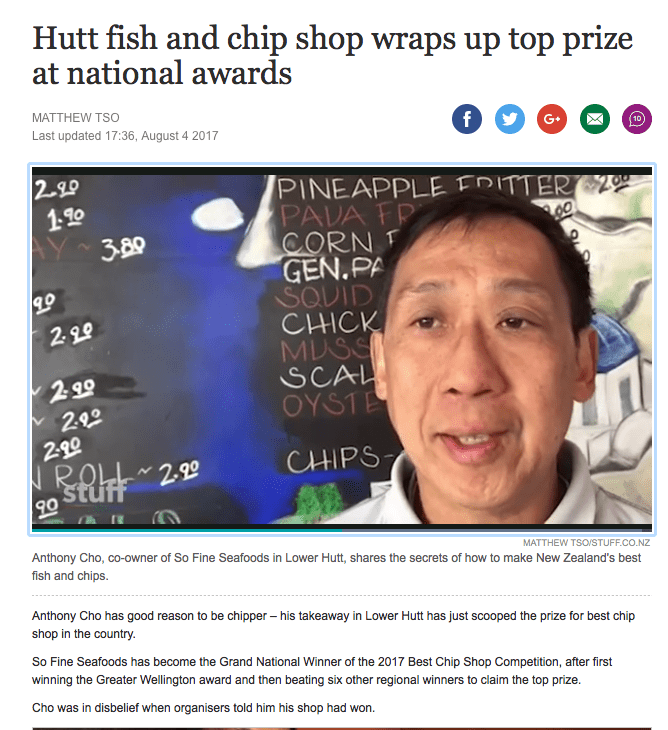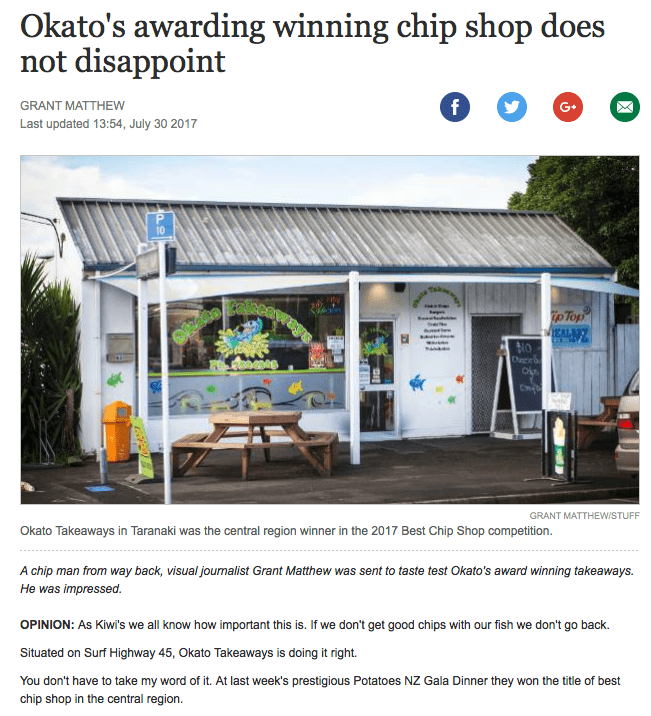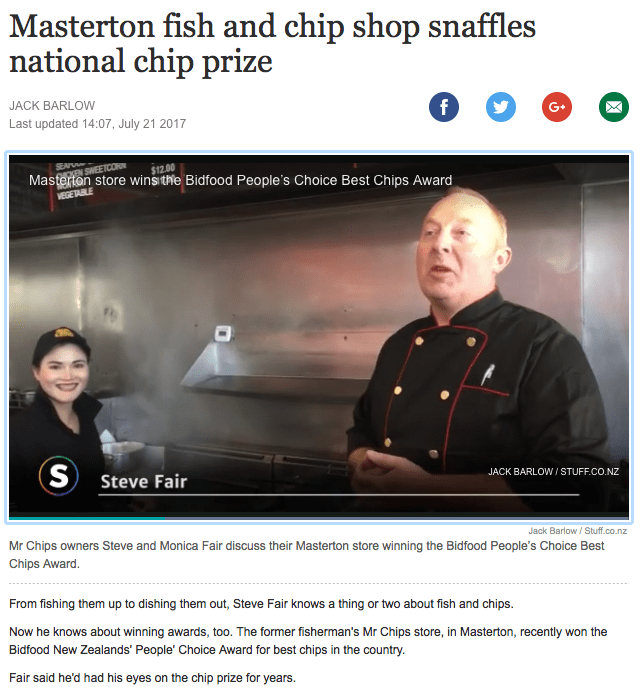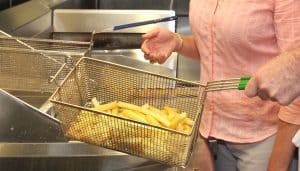
Last updated 17:22, January 17 2018
A classic Kiwiana culinary measurement is under scrutiny, with an industry educator calling for a scoop of chips to become standardised.
A Stuff survey of five fish ‘n chip shops in Palmerston North found a scoop of chips, while costing $3 at each shop, could weigh as little as 363 grams and as much as 480g.
None of the stores displayed information saying how much a scoop would weigh.
The Chip Group training and education manager Kate Underwood said variation in scoops was rife.
The last survey the group did found a cooked scoop ranged from 280g to 800g, she said.
“It is the one thing in New Zealand you go to buy and have absolutely no idea how much you will get.”
Having different sizes shop-to-shop made it tricky for customers to know how much to order, so they would either throw out food or think they had been short-changed, she said.
The group had spent years advocating for people to make a scoop 330g of uncooked chips, which would become slightly heavier as they absorbed oil while cooking.
Underwood said 330g was about what you got in a cup at a sports event, and was an appropriate serving for one person.
It was also a good size for cooking frozen chips. A scoop too big would see the oil cool too much, resulting in soggy chips, she said.
Shops with the best chips often used scales, which they would weigh chips on before they went to the fryer.
That also helped with consistency between different kinds of chips, like straight cut, French fry and curly, Underwood said.
“Maybe even weigh every one in 10 scoops, to get an idea of how many grams you are serving each time.”
It could be hard for shop owners though, as customers may have become accustomed to larger sizes.
“A lot of owners get flack from customers saying ‘that’s not enough, give me more’,” Underwood said.
“It is about the customers and the operators knowing [330g] is enough.”
She said signage about scoop size could let customers know what they would get.
Fishtown Takeaway owner Gary Yeh said he aimed to serve at least 400g per scoop.
His staff were experienced enough to know how big 400g was in the scoop, and he would keep an eye on new staff.
“Sometimes new staff will give extra, but I don’t mind that.
“We only give extra and don’t give less.”
Customers would sometimes say a scoop was too small, which could be down to them being used to takeaways from other places, Yeh said.
It was also tricky when customers asked for things like “$5 worth of chips”, as it skewed the scoop system. Staff would have to try to figure out how much $5 worth was, then show that to customers, who might ask for another few dollars’ worth, he said.
HOW MUCH IS TOO MUCH?
Statistics New Zealand includes fish ‘n chips as part of the consumer price index, defining a meal as one fish and one scoop of chips.
The agency was unable to separate the fish prices from the scoop prices for Stuff, but its data shows the costs of the meal has gone from $4.38 in June 2006 to $6.47 in December 2017.
But tomato sauce has not been subject to inflation. In fact, a 560g can of the classic fish ‘n chip accompaniment has gone from $3.03 in June 2011 to $2.84 in December 2017.
The index does not measure other condiments people may have with their fish ‘n chips, such as mayonnaise, aioli or lemons.
– Stuff
]]>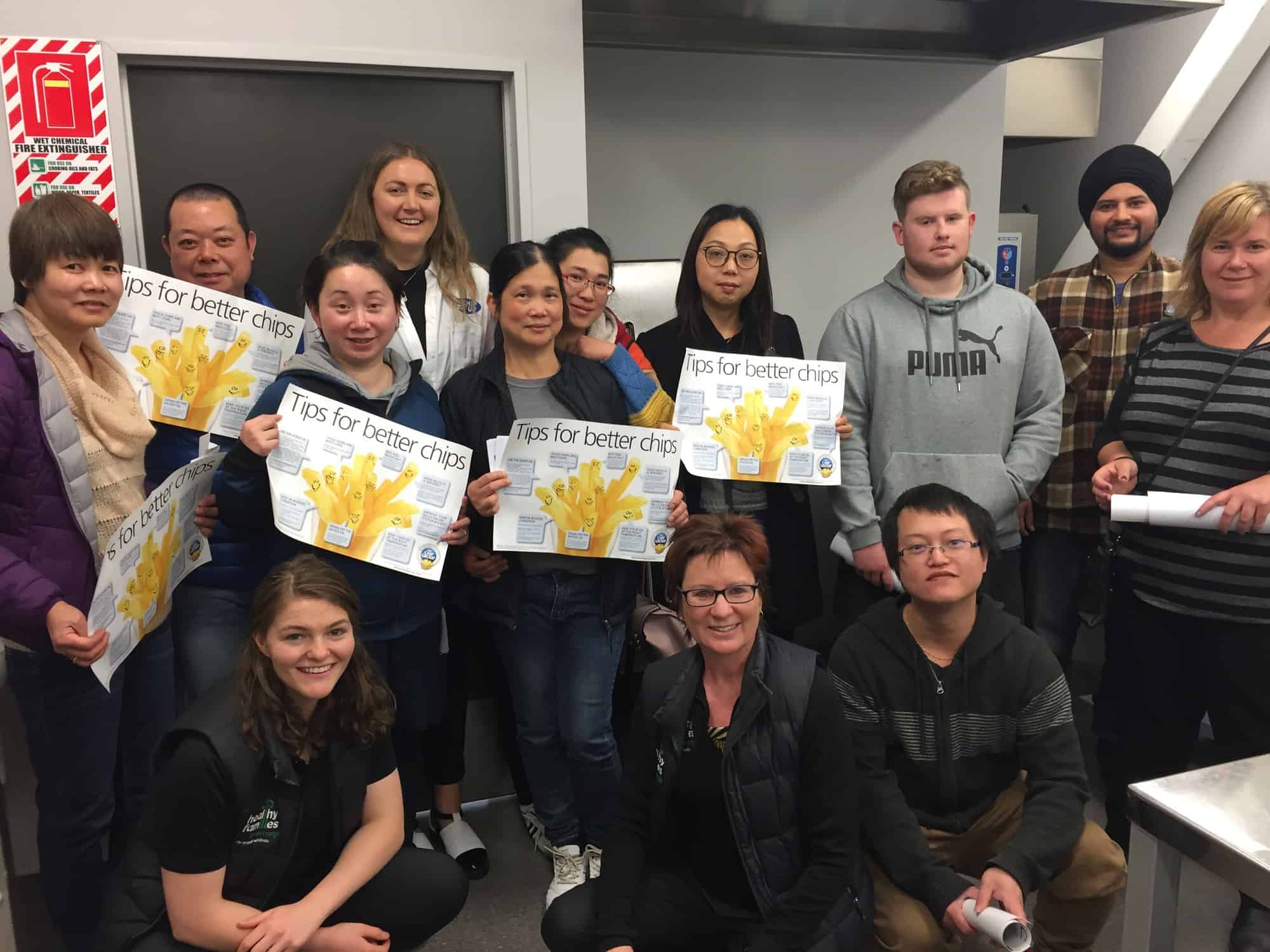
But now it’s being made healthier and tastier, thanks to chip training organised by Healthy Families Invercargill and run by The Chip Group.
Operators from about 10 takeaway businesses attended the training, at ILT Stadium Southland, on Monday morning, to learn how to make their chips healthier.
The Chip Group training and education manager Kate Underwood said New Zealanders ate 4 million scoops of hot chips each week. That was potentially a lot of fat and salt going into people’s diets each week, so it was important to show people ways to make them healthier, and retain the nutritional value of the potato.
Small changes such as the temperature of the oil, how often the oil was filtered and replaced, and how long the chips were cooked for, all made a large difference in the final fat content of the chips, and the resulting nutritional value.
As well as showing operators how to cook their chips, to keep the fat content lower than 10 per cent, it also taught them how to clean their fryers and filters.
Healthy Families Invercargill manager Jared Cappie said teaching people how to make their beloved foods healthier was key to being able to continue enjoying them, without the unwanted negatives, such as high fat and salt content.
‘’This is about educating people, so they can still enjoy these favourites. It’s not about taking anything away, it’s about making things better.”
Obesity rates in Invercargill are higher than the national average, but by working collaboratively as a community, small changes could make big differences, he said.
Tips and tricks for healthier chips:
- Thick chips are best – 13mm
- Drain excess oil
- Standard serving size is 330gm (before cooking)
- Keep oil at 175degC
- Not too much salt
- Use Chip Group approved oils
Keep oil in good condition
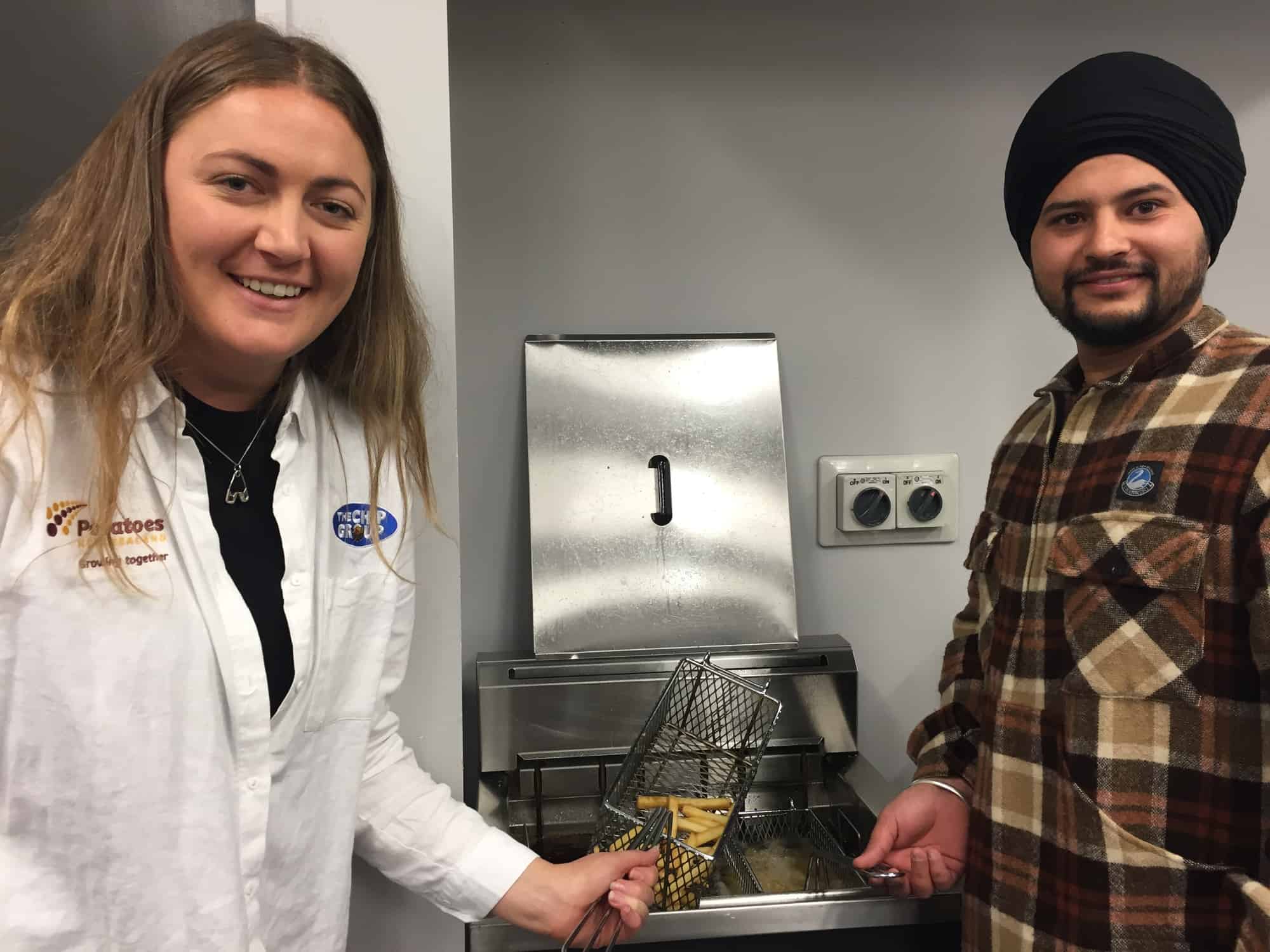
The Chip Group training and education manager Kate Underwood shows Jagroop Singh, of TJ’s Kitchen, how to make healthier chips. Photo: Healthy Families Invercargill
]]>
]]>

Chip shops can enter the ‘People’s Choice’ Award themselves, or they can be nominated by their customer. All the voting will take place online, on the Chip Group website. This is a totally separate award to the original competition – but stores will still need to have completed the Chip Group’s Online Training course in 2016 or 2017. Fat content isn’t important for this award, in fact the only thing that matters is that people love their chips. There will only be one vote available per person, so customers will need to be smart about who they choose, and bulk voting will not be possible.
We have some exciting and delicious prizes up for grabs (FREE CHIPS!) – for both the winning shop and for one lucky voter. Everyone who votes with their email address will go in the draw to win. We are extremely lucky to have ‘Bidfood’ on board as the naming sponsor for this event. Bidfood (previously known Bidvest) are one of New Zealand’s largest food distributors delivering goods to many food service businesses throughout the country. They also sell products on behalf of our other supporters including: Mr Chips, McCain’s Foods Ltd and Talley’s, as well as Bakels Edible Oils and Groenz (Kiwi Style Sauces).
The inclusion of this ‘People’s Choice’ award helps encourage customer engagement and the opportunity to show their support for their favourite chip shop. It provides the perfect opportunity for stores to connect with loyal customers and stores are encouraged to run in-store promotion to increase their chance of gaining more votes.
So, think about where your favourite chips are…jump online and show your support for all those hard-working chip shops. We can’t wait to see where you think NZ’s Best chips are!
Kate Underwood
Training and Education Manager
The Chip Group
]]>
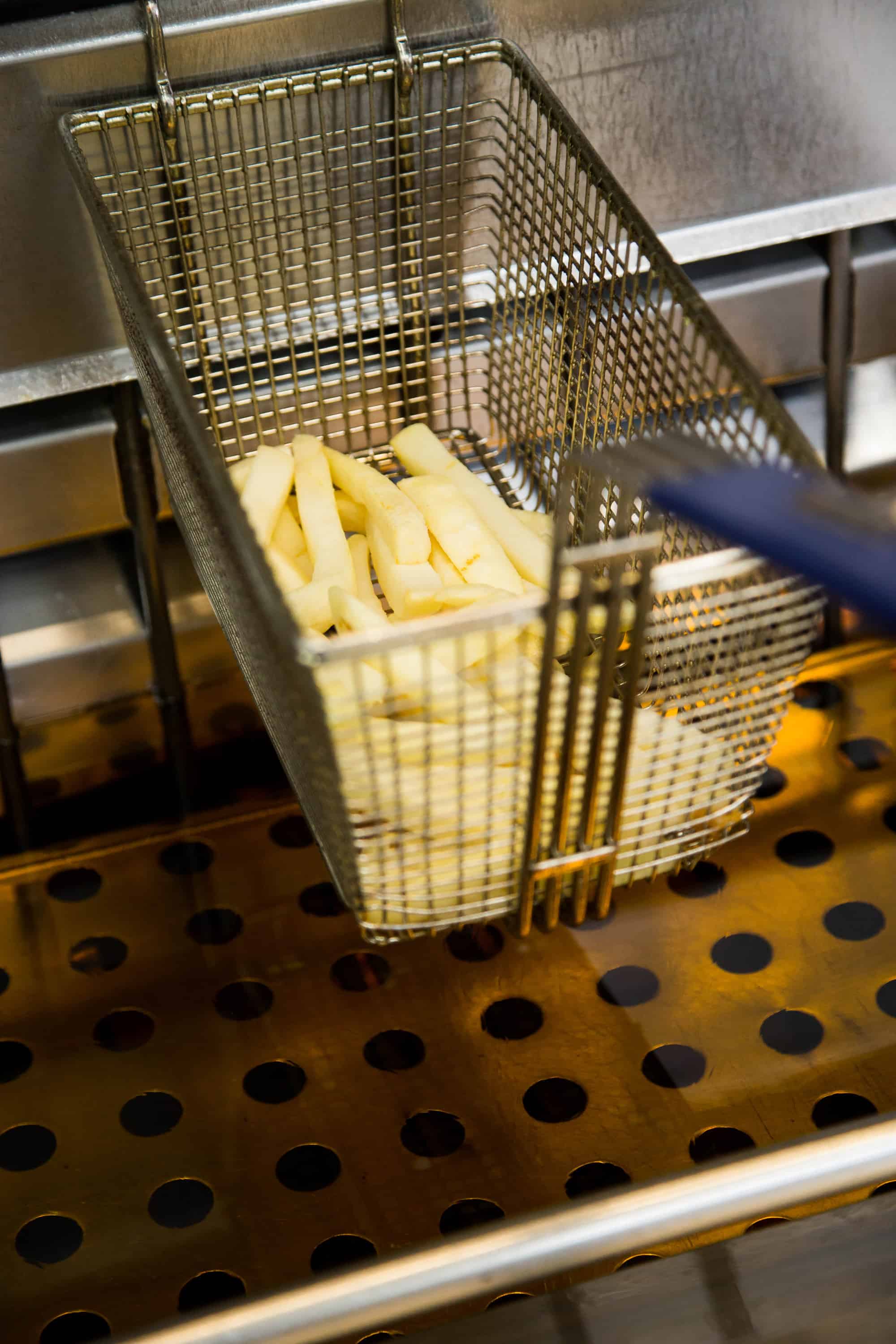
Those who attended were rewarded with a ‘cook and taste’ session at the end of the training. We were kindly donated samples of both 13mm and 16mm chips by Talleys Limited, to allow the students to put their new-found knowledge into practice. Students thoroughly enjoyed tasting and eating the chips, but also getting hands-on experience with temperature variation, cooking time and basket drainage. There was plenty of interesting discussion around the techniques of how to reduce fat, while still producing tasty chips.
We are thrilled to see that recently; an increasing number of Tertiary Institutions like UCOL are now interested in including Chip Group training as part of their course work. It is inevitable that the type of students studying cookery or similar courses will one day end up in kitchens with deep fryers. By gaining a base knowledge about frying early in their career the hope is that this strong foundation will ensure a flow-on effect for those whom they will work with in the future.
Having a practical element ensures that attendees get hands-on experience about how to cook the chips according to The Chip Groups’ Industry Standards. It also allows for greater discussion around frying techniques. It was great to see such a diverse spread of ages and ethnicities within the class – there was certainly a sense of fun in the air when they realised they were able to both cook and eat hot chips.
Each student is given an official Chip Group training certificate and a small gold badge to acknowledge their efforts – with the intention of being able to include these as part of their CV. The Chip Group are thoroughly enjoying having the opportunity to support various Tertiary Training Institutes throughout the country as it allows us a whole new outlet for people to share our Chip Group messaging with. We look forward to working with many more cookery and chef students throughout the country.
Kate Underwood
Training and Education Manager
The Chip Group.
]]> underway! With just under 80 entrants in this year’s competition, after a 4-year hiatus we are thrilled to see such an engaged number of operators on board. We have seven regions represented throughout the country and now we eagerly await whose chips will reign supreme….
underway! With just under 80 entrants in this year’s competition, after a 4-year hiatus we are thrilled to see such an engaged number of operators on board. We have seven regions represented throughout the country and now we eagerly await whose chips will reign supreme….
Just like the 2013 Competition, a crucial factor in the judging process will be comparing the fat content of each entrants’ chips. Over the next few weeks, entrants will be sent a ‘testing kit’ where they must cook their chips, as they normally would, place them in a sample bag and send them away to the lab for fat testing. All those operators whose chips contain less than 9% fat – will receive a Highly Commended Award.
From here all Highly Commended Chips will automatically become a Regional Finalist – they will be mystery judged with the chance to win one of the seven ‘Regional Winner’ titles. The seven regions are as follows: Northland and North Shore, Auckland, Waikato and Bay of Plenty, Central – Gisborne, Hawkes Bay and Taranaki, Greater Wellington – including Manawatu and Whanganui, Upper South Island – including Nelson, Marlborough, Tasman, West Coast and Christchurch and Lower South Island – including South Canterbury, Otago and Southland.
The competition and judging period will run through the months of May, June and July – with the final Grand National Winner being announced at the Potatoes New Zealand Conference in Pukekohe on Wednesday 26th July. Stay tuned to hear updates on whose chips are considered the best in your region and who will win the ultimate NZ chip prize.
During this time we also open the door to our new award the 2017 Bidfood People’s Choice Award. This part of the competition will be judged via online voting, where customers and the public can head online and nominate their favourite chip shop.
To find out more about the Bidfood People’s Choice Award go to our website www.thechipgroup.co.nz/peopleschoice.
Kate Underwood
Training and Education Manager
The Chip Group
]]>
How operators ‘Shake, Bang and Hang’ their way to more $$$ (and healthier chips!)
The big secret to cooking the best chips lies in three very simple words… “Shake, Bang & Hang”.
As operators complete our FREE online Chip Group training, they learn that by following a few simple steps they can literally Shake, Bang & Hang their way to lower fat, better tasting chips all while significantly increasing profit.
But why is this so important to the chip operator and to their customers?
· Over time they can save serious money
· They can reduce the total fat content by up to 20% in their chips
· They can help improve the health of their customers by providing lower fat healthier chips
· They save oil – by obtaining more oil in the fryer, they have less walking out the door on your chips and in turn can save a significant amount of money.
How does it work?
1. The first step is to ‘Shake’ the basket vigorously. That means removing most of the excess oil that the chips have soaked up during cooking. Every drop of oil that drips back into the fryer is more money saved, and delays purchasing new oil.
2. Next is all about the ‘Bang’. Banging the chip basket twice on the metal sides of the fryer will see even more oil flying off the chips and back into the fryer. It needs to be a decent bang, but not so hard that it makes a dent in the metal. Any oil going back into the fryer, means lower fat chips for your customers and less money walking out the door.
3. The final step is to ‘Hang’ the basket, for at least 20 seconds. The longer you leave the basket hanging, the more fat can be removed. The Chip Group recommends hanging the basket for a minimum of 20 seconds, and longer if possible. This helps those final bits of oil drip back into the fryer, while allowing the chips to crisp up instead of becoming soggy.
When it’s a busy Friday night or during a hectic lunch hour, it’s often tempting for operators to take the chips straight from the oil to the wrapper. But waiting an extra 20-30 seconds can mean the difference between a healthier, crispy and delicious chip or a soggy, greasy, oily and horrible one.
So the secret’s out for all to know – the BEST chips are simply a shake, bang and hang away! Next time your getting your Fish and Chip fix from your local chippy, have a look into the kitchen and see if they are following the ‘Shake, Bang and Hang’ method, and while your at it – encourage them to enter this years’ 2017 Best Chip Shop Competition.
]]>
